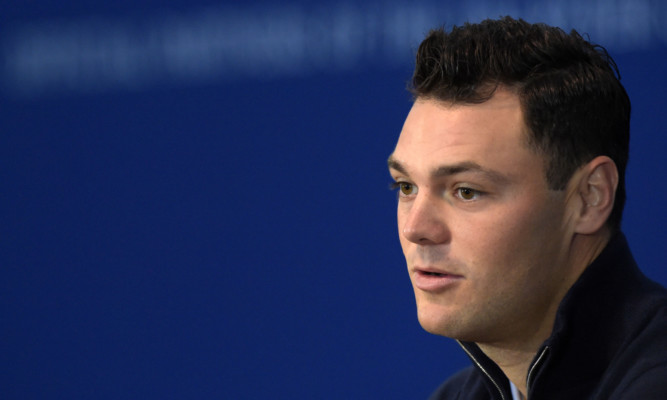He’s said it before of course. Countless times.
But the impact of Martin Kaymer explaining that absolutely no doubt entered his mind when he stood over a six foot putt to retain the Ryder Cup loses none of its impact in the re-telling.
Kaymer is a man who knew he couldn’t miss when everybody Euro-minded around him feared he would.
Ian Poulter may be the face and passion of this Ryder Cup team, Rory McIlroy the supreme talent, and Stephen Gallacher the home favourite.
But the assured confidence of the German will be one of the great strengths of Paul McGinley’s band of golfing brothers over the next three days.
Kaymer’s putt on the 18th green at Medinah was the last significant blow in the Ryder Cup, and will be an enduring image as long as the competition is played and talked about.
No doubt he’s been asked by other members of the European side this week to talk them through what his mind was processing at that critical moment. But if any of them haven’t sought him out, they should.
It’s too long to write on one of the grandstands around the PGA Centenary Course like some of snappy quotes that have been chosen by the organisers, but for a description of how to best deal with the most intense Ryder Cup pressure imaginable, there will be none better than Kaymer’s.
“It’s tough to answer because it shouldn’t sound arrogant,” the two-time major winner said.
“But I never had a doubt in my mind that I would miss the putt. It’s one of those things that you cannot miss.
“Maybe some athletes would understand. I was trying to explain it to a good friend of mine and he had no idea what I was talking about.
“It’s one of those things that you don’t have a choice of missing. It’s not an option. So it doesn’t even cross your mind that you might miss it. So for me, everything was clear.
“I knew exactly what I needed to do. It never crossed my mind that I might fail.
“It’s quite nice to get to know yourself in a way like this, because I was not afraid of failure. I was not afraid of winning.
“You see it in different sports sometimes they are afraid of winning because it’s a different situation. It can be uncomfortable. But it was a nice situation for me.
“If you receive such a big gift as I received two years ago, I needed to be prepared for that moment.”
It hasn’t always been this way for Kaymer.
Had the responsibility fallen to him not Graeme McDowell two years before, it would probably have overwhelmed him. The honour would have been a burden.
Kaymer is as honest about his negative emotions at Celtic Manor as he is about his positive ones in Chicago.
“When I was standing here at a Ryder Cup on the first tee in 2010 it was very intimidating for me,” he admitted. “It was too much.
“I couldn’t really handle the whole situation. It was more distracting to my mind to get to know all the crowds.
“It was like playing in a jungle without having a clear mind, without knowing what you actually have to do.
“I had a very nice conversation with Bernhard Langer in 2012 and pretty much the moral of the whole talk was at the end of the day it’s just you, the golf ball and the golf course that you have to play.
“And then we talked about using the people in a positive way, that they carry you. There’s nothing negative about it. But I didn’t think that clearly in 2010. Now it’s a bit different.
“You can use it to raise your game. I think it’s very important that you find a way to enjoy the Ryder Cup as quickly as possible. Once you enjoy it, you play your best game, I believe.”
“German efficiency” is the clichd description of Kaymer the golfer, but it could also be attributed to McGinley the captain.
“It’s quite nice to see that Paul uses the German, how do you say, way of succeeding in sport,” he observed.
“Well, it worked in Brazil!
“I think for a lot of players it’s very important that everything is structured.
“The way Paul talks to us, the way he is with every individual, is very, very helpful.
“I’ve been a little bit surprised at how much care he’s taken of every single player, which is brilliant.”
